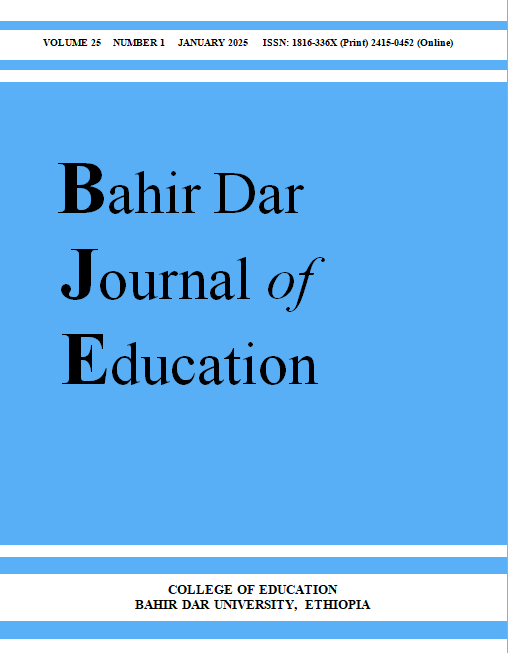Article Sidebar

Published:
Feb 25, 2025Keywords:
Article Details

This work is licensed under a Creative Commons Attribution 4.0 International License.
Authors who publish in this journal agree to the following terms:
- Authors retain copyright and grant the journal right of first publication with the work simultaneously licensed under a Creative Commons Attribution License that allows others to share the work with an acknowledgment of the work's authorship and initial publication in this journal.
- Authors are able to enter into separate, additional contractual arrangements for the non-exclusive distribution of the journal's published version of the work (e.g., post it to an institutional repository or publish it in a book), with an acknowledgment of its initial publication in this journal.
- Authors are permitted and encouraged to post their work online (e.g., in institutional repositories or on their website) prior to and during the submission process, as it can lead to productive exchanges, as well as earlier and greater citation of published work (See The Effect of Open Access).
Dame Taye, Hawassa University
School of Teacher Education, College of Education, Hawassa University, Ethiopia
Tesfaye Semela, Hawassa University
Professor of Sociology of Education & Ed. Psychology, School of Teacher Education, College of Education and Institute of Policy & Development Research (IPDR), Hawassa University, Ethiopia.Samuel Assefa Zinabu, Hawassa University
Associate Professor of Curriculum and Instruction, School of Teacher Education, College of Education, Hawassa University, Ethiopia
Main Article Content
Development and validation of propensity to cheat measure in the Ethiopian public universities
Dame Taye
Tesfaye Semela
Samuel Assefa Zinabu
Abstract
The major objective of this research is to develop a comprehensive and psychometrically sound scale assessing students' perceived propensity to cheat employing the theory of planned behavior. An exploratory sequential mixed design method was used to qualitatively explore the forms of intention to cheat and their indicators, followed by a quantitative method to examine the psychometric qualities of the scale based on a random sample of 500 (male = 367 [73.4%]; female = 133 [26.6%]) university students. Structured interviews and questionnaires were used to collect data. The propensity to cheat scale (PCS) is a valid and reliable tool for use in research, according to explanatory factor analysis and reliability evaluations. The PCS, therefore, measures what it promises to measure.





